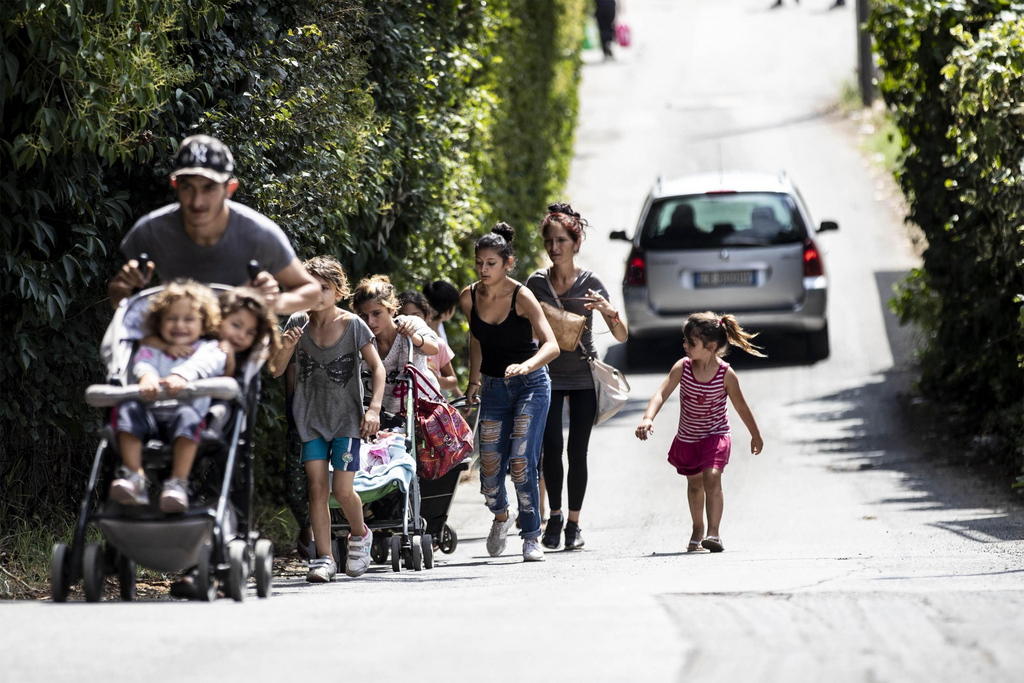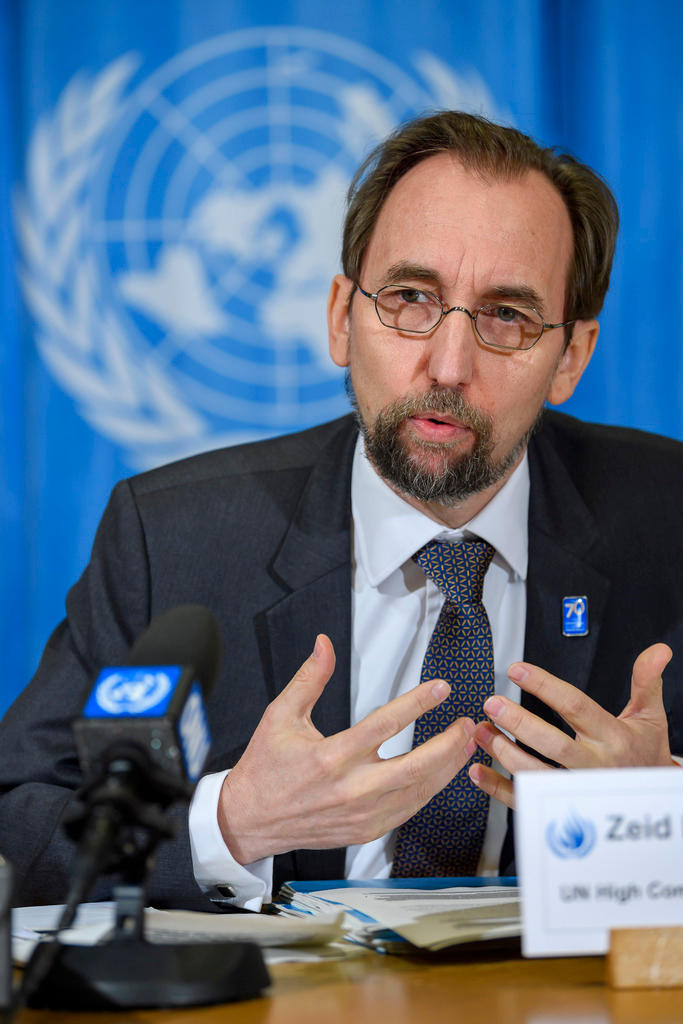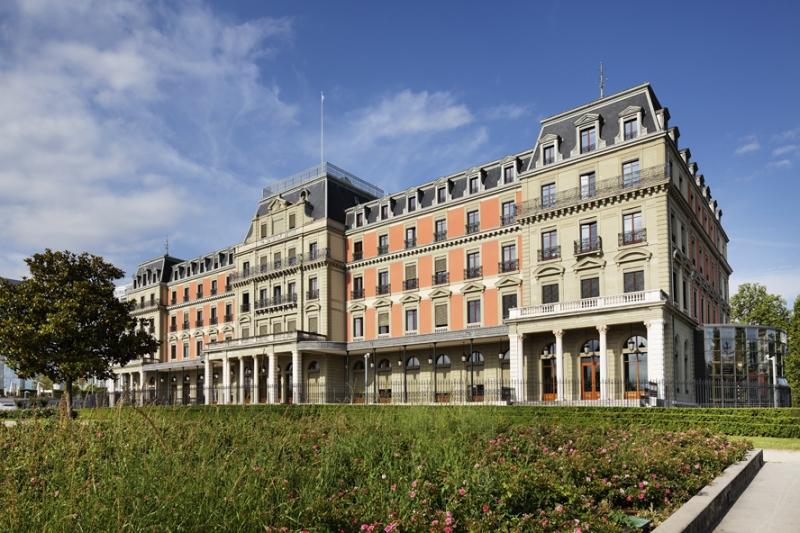
The hardest job? Change at the top of UN Human Rights

“Silence does not buy you any respect – none.” The words of UN Human Rights Commissioner Zeid Ra’ad al Hussein during one of his final press conferences before leaving office at the end of this month.
By that standard, Zeid should be one of, if not the, most respected men on the planet. He has been famously blunt about human rights abuses around the world, sparing no one. Throughout his time in office, his speeches and statements were eagerly awaited by the Geneva press corps: here was a UN diplomat who spoke his mind, never flinching from the task of speaking the truth about human rights to some of the world’s most powerful violators.
Zeid has likened US President Donald Trump, or Hungary’s prime minister Viktor Orban, to ‘demagogues’. He has suggested that Rodrigo Duterte of the Philippines ‘needs psychiatric evaluation’. He has warned repeatedly of the dangers of xenophobia and populism.
His stance has endeared him to human rights activists worldwide.
“He has been incredibly outspoken at a very difficult time,” says Louis Charbonneau, who is UN Director at Human Rights WatchExternal link.

“He has reminded them [world leaders] that they could face accountability. If they are at the top of the chain of command of crimes they could ultimately face the music. It has not won him friends, but I think it is important.”
Lonely job
Indeed his outspokenness has not won Zeid any friends. Even in his native Jordan, where it was once suggested he might be rewarded with a top diplomatic post following his tenure as UN Human Rights CommissionerExternal link, opinion of him has cooled. Amman was not happy when Zeid criticized Jordan’s re-introduction of the death penalty, nor that he chided the government when it hosted an Arab Summit whose guest list included President, and indicted war criminal, Omar Al Bashir of Sudan.
Zeid has decided not to stand for another term. Even if he had wanted to (and he has said he doesn’t because it would mean ‘bending the knee in supplication’), he would not get the job. UN Human Rights Commissioners need the support of the UN Security Council, and at least three permanent members (the United States, China, and Russia), and possibly all five, will not support him.
But although Zeid may have set precedents in his outspokenness, every Human Rights Commissioner has attracted the disapproval of world leaders. It is arguably the toughest job the UN has to offer: whereas heads of aid agencies like the World Food Programme and Unicef can look comfortably virtuous bringing help to the vulnerable, it falls to the UN Human Rights Commissioner to call out the military and political leaders whose actions have caused that vulnerability in the first place.
Mary Robinson irritated China by being the first UN Human Rights Commissioner to visit Tibet, and was criticized by the Bush administration for suggesting its ‘war on terror’ might compromise human rights standards. Louise Arbour too said that “The war on terror has inflicted a very serious setback for the international human rights agenda”.
Navi Pillay fell foul of Sri Lanka for pointing out the atrocities committed at the end of its civil war, and of Israel for criticising its actions in Gaza. For many, being unpopular among governments is a good indication that the UN Human Rights Commissioner is doing his or her job properly.
“The High Commissioner needs to be saying things that are unpopular, he or she is not in that job to tiptoe around the issue,” says Charbonneau.
“Zeid is a strong, independent and leading voice for human rights in the world,” adds Isha Dyfan, Advocacy Director for Amnesty InternationalExternal link. “He has been very clear and consistent and that is what we look for.”
“He will be clearly missed.”
The perfect candidate?
Now Michelle BacheletExternal link, former President of Chile, is set to follow Zeid in this very difficult job. The UN General Assembly approved her appointment on August 10.
Bachelet is UN secretary general Antonio Guterres’s first choice, and for governments and human rights groups alike she could be the perfect candidate: a politician elected to high office, she knows her way around international diplomacy. But also a victim herself of human rights violations: she, her mother, and her father were all detained and tortured under the regime of General Pinochet. Bachelet’s father died as a result.
But will she be as outspoken as Zeid? In his now likely to be unsuccessful bid for the job himself, the UN’s special rapporteur on torture, Nils Melzer, who is Swiss, advised against Zeid’s blunt style.
+ Learn more about Nils Melzer and his role as rapporteur on torture
“The next high commissioner must understand that defending human rights is not about attacking governments,” he wrote. “It is not an exercise aiming to attribute blame or fault.”
This approach might find favour with some of the UN’s 193 member states. Many governments are uncomfortable with the UN Human Rights Council’s ‘name and shame’ approach, which they view as counterproductive.
But human rights activists will be looking for someone to follow in Zeid’s footsteps. Charbonneau believes that it is the UN Secretary General who needs the soft diplomatic skills, and to succeed with them, the Secretary General needs a Human Rights Commissioner who will speak out.
“If he [Guterres] puts a soft peddler in it will just make his job more difficult. The Secretary General needs someone who will lead the fight on human rights.”

More
The turbulent history of the Palais Wilson
Whatever style Bachelet chooses to adopt, her new job will be an enormous challenge. In some of the countries which, 70 years ago, gave the staunchest backing to the Universal Declaration on Human Rights, there is now an active debate over whether those rights are really universal, or even necessary.
Donald Trump, during his election campaign, famously said that ‘torture works’. What kind of conversations, one wonders, will a President who suggested he would reintroduce torture have with a UN Human Rights Commissioner who is also a former torture victim?
Reacting to Bachelet’s nomination, Amnesty International’s Isha Dyfan said it “comes at a tumultuous time for the human rights community. As we approach the 70th anniversary of the Universal Declaration of Human Rights, the freedoms enshrined within it are under sustained threat around the world.”
“It will take a strong and principled leader,” she continued. “Willing to speak truth to power and ready to mobilize resources and political will, to defend our rights in this challenging climate.”
Nevertheless Dyfan, despite the challenges towards human rights in some countries, and the multiple crises, retains some optimism.
“I see those challenges but I also see opportunities for engagement. To stop and give up is not an option.”
You can follow Imogen Foulkes on twitter at @imogenfoulkes, and send her questions and suggestions for UN topics.

In compliance with the JTI standards
More: SWI swissinfo.ch certified by the Journalism Trust Initiative































You can find an overview of ongoing debates with our journalists here . Please join us!
If you want to start a conversation about a topic raised in this article or want to report factual errors, email us at english@swissinfo.ch.